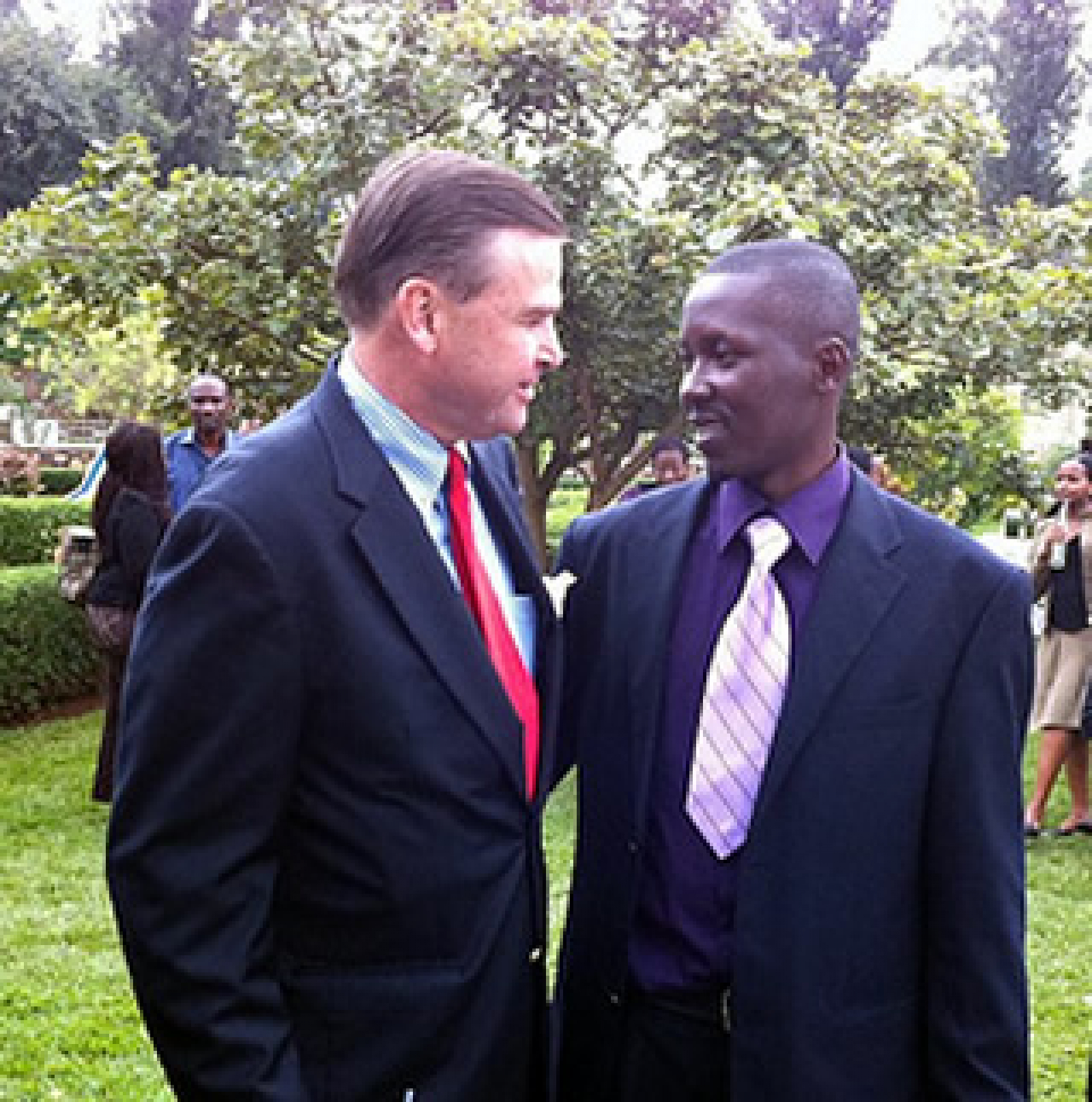
SHARE
While young people under 25 comprise approximately two-thirds of Rwanda’s population, historically they have lacked meaningful opportunities to engage in politics. An older elite has traditionally made the country’s political decisions, and during the 1994 genocide, political leaders mobilized disaffected youth for violent ends. But today, many young Rwandans hope to channel their untapped power into productive and peaceful political expression.
Since September 2008, NDI has helped Rwandan political parties organize and communicate with supporters. This includes training young activists who are joining parties in increasing numbers and who are often receptive to new ideas about party organizing, democracy and technology that can help parties reach new voters and win more support.
To provide Rwandan youth with practical political skills, NDI partnered with the Rwandan Consultative Forum of Political Organisations to create the Youth Party Leadership Academy (YPLA) in Kigali last year. Funded by the U.S. Agency for International Development, the academy included three months of intensive political training, as well as a study mission to Accra, Ghana, for the top-performing students. There participants learned firsthand from their Ghanaian counterparts how young people can participate actively in political parties — and support peaceful, democratic politics in the process.
This month, the Institute launched an expanded academy in two locations: the capital, Kigali, and the southern city of Butare. The academy brought together 80 under-35 activists from all 10 of Rwanda’s registered political parties for three seminars a week over 10 weeks. Sessions are led by international and local practitioners and academics, and address political party organizing, political communication, good governance, building a political career, ethical leadership, negotiation and conflict prevention, and using technology for political organizing, among numerous other topics.
NDI Resident Director Amy Pritchard has high hopes for the students. "They’re an incredibly dynamic and engaged group," she said. "We are focusing on the role political parties play in Rwanda's government, elections and civic life, and are working on teaching skills that will improve the students’ and their parties’ leadership abilities."
Meanwhile, the 34 graduates from the first academy are putting their new skills to good use. Last year, the Social Democratic Party nominated YPLA graduate Theodomir Niyonsenga to serve as its second deputy general secretary. During last year’s presidential elections, graduates Claudette Mukabaseyba, Pie Nizeyimana, Telesphore Hakorimana and Sada Uwase were invited to join the forum’s national election observation mission, while others served as political party agents at polling stations, trained fellow party members in campaign skills, or helped to organize campaign rallies and get-out-the-vote efforts. Two YPLA graduates ran in last month’s local elections and one, Angélique Mukunde, was elected vice mayor for economic affairs in the capital’s Kicukiro district.
Related:
- Follow YPLA on Twitter»
- In Rwanda, staff work to promote political party dialogue and peaceful competition»
- 10 days in Rwanda: Training political parties to embrace technology»
- Young leaders learn, network at East African political academy»
Pictured above: U.S. Ambassador W. Stuart Symington greets YPLA student Yves Bariyanga at a reception following the academies' launch in Butare.
Published March 22, 2011


